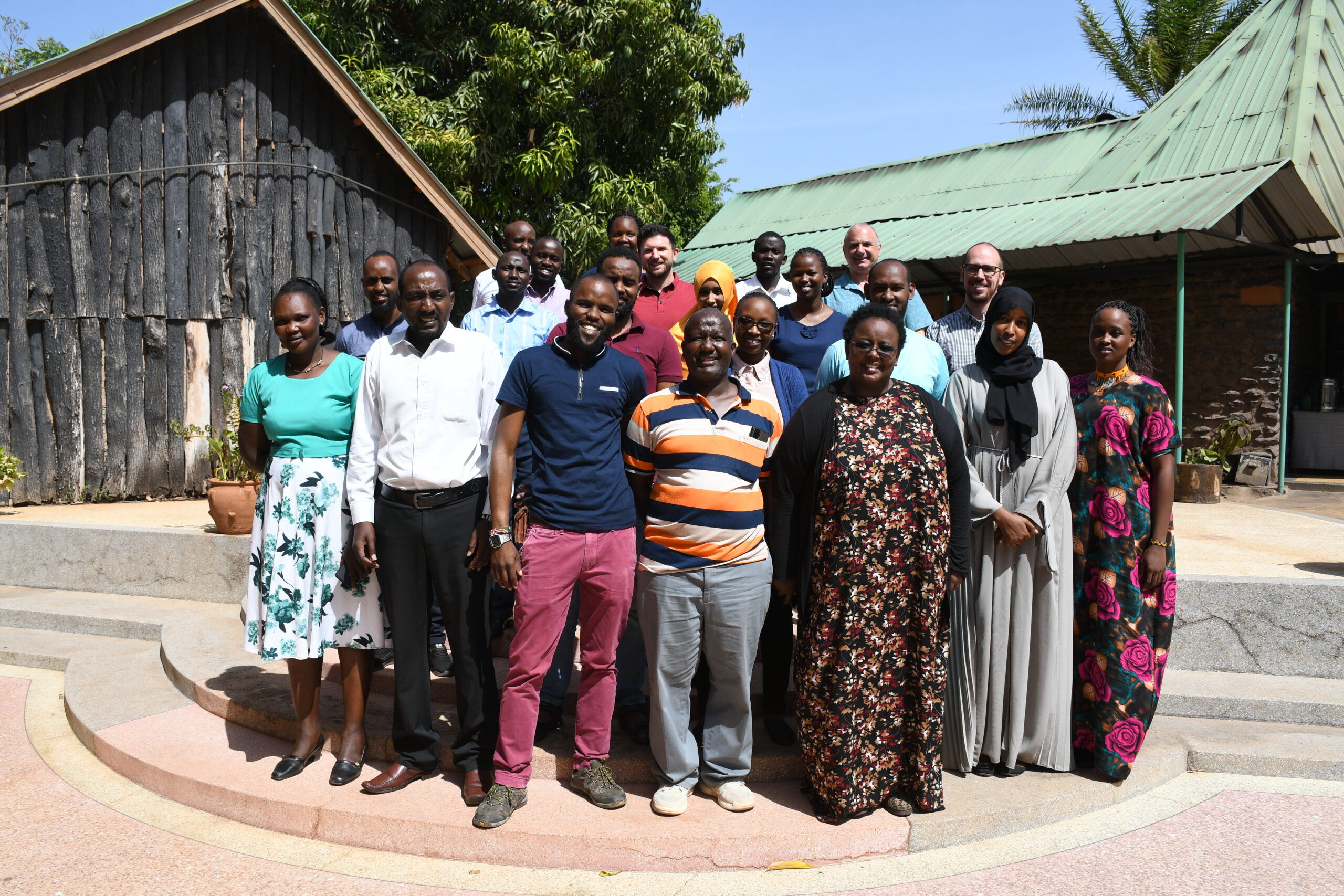Hosted by IMPACT, the workshop was held at Rangelands Hotel in Isiolo Town, Isiolo County, from 26-27 May 2022.
In total, 22 individuals participated, representing 12 pastoralist and civil society organisations working across northern Kenya. As part of the PARAN Alliance and other peacebuilding networks, these organisations operate peace programmes in the counties of Marsabit, Isiolo, Laikipia, Samburu, and Turkana, and work in communities represented by 19 different ethnic identity groups. The work of these local organisations is crucial now more than ever, with environmental conflict on the rise and external interventions alone proving incapable of delivering sustainable peace.
The workshop is part of a USIP-funded research project, entitled ‘Supporting Grassroots Environmental Peacebuilding in Northern Kenya’, which will generate insights into the unique challenges grassroots organisations face in sustaining, scaling, and linking their peacebuilding movements. The project also aims to help address these challenges through three phases:
- Phase 1: Research (complete) The first year of the project involved research into environmental peace and conflict across northern Kenya, including the unique challenges faced by grassroots environmental peacebuilders
- Phase 2: Action (in progress) We are now putting research into action, piloting three training courses responsive to the unique needs of grassroots environmental peacebuilders. The courses are based on our research in northern Kenya, but will be made relevant to environmental peacebuilding organisations globally.
The training courses are informed by Phase 1. The Environmental Fellows involved in collecting and analysing the research were instrumental in identifying the training needs. You can read more about their role in the project here.
- Phase 3: Dissemination This is the next phase of the project, expected late-2022.
As part of Phase 2 of the project, the purpose of this workshop was to pilot four initial short training courses developed based on our research. The topics of the courses were:
1 Understanding environmental change, conflict, and peace
Led by Guyo Haro, Natural Resource and Conflict Expert
2 Facilitating community dialogue about environmental peace and conflict
Led by Halkano Boru, Researcher and Peacebuilder
3 Engaging children and youth in environmental peacebuilding research and action
Led by Sergio Bersaglio, Executive Director, VOH-A
4 Engaging women in environmental peacebuilding research and action
Led by Trizah Nairotia Eyanae, Peace Programme Assistant, IMPACT


Each short training course included a lecture delivered by an expert in the topic, followed by interactive session where workshop participants could apply knowledge gained (for example, see Box 1). Participants were also given opportunities to share their own experiences and knowledge on each topic and to evaluate each course to identify how their design and delivery might be improved in the final version of the training curriculum.
Box 1: Putting knowledge to action
Through Halkano Boru’s presentation, participants were offered conceptual and practical insights into approaches to facilitating community dialogue about environmental peace and conflict. To apply these insights, participants were showed a video produced by IMPACT on water resource conflict in northern Kenya. They were tasked with conducting a community profile and stakeholder analysis of the conflict depicted in the video. Knowing how to conduct community profiles and stakeholder analyses is key to effectively facilitating peace dialogues within and between communities.
After completing the tasks and presenting their work, participants were able to reflect on the training course based on their own knowledge and experience. These reflections were documented and will be used to further improve the module before it is finalised.
Once we are finished piloting all the short training courses and incorporating feedback from grassroots peacebuilders across northern Kenya, a final training curriculum will be developed (including videos) that will be free to access on our website and of use to grassroots peacebuilders around the world
The approach of having civil society workers and grassroots peacebuilders pilot our training curriculum aligns with the participatory, action oriented design of our research. There is a dearth of knowledge of how bottom-up approaches to environmental peacebuilding can work to reduce environmental conflict at the sub-state or grassroots level in fragile contexts. Our work responds to the need for knowledge in this area. You can read more about the research here.
Stay tuned for updates on the second and third workshop in our series – expected September 2022!
